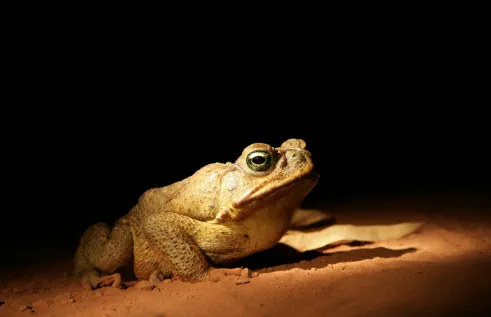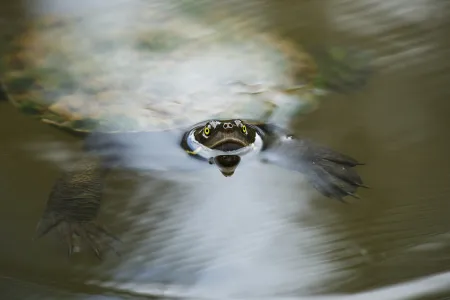News
First Nations knowledge to aid turtle conservation in the Territory
First Nations knowledge and information will aid conservation and kickstart new plans for the management and monitoring of freshwater turtles in the Northern Territory.
A one-day workshop was held with researchers and First Nations rangers this week at Charles Darwin University (CDU) on Wednesday, April 6.
First nations ranger groups have come together to talk about First Nations turtles on their country to inform the listing assessments and conservation advice under the EPBC Act (1999) on whether turtle populations are healthy, how they are cared for, monitored and looked after.
Information shared as a part of the workshop will also aid knowledge sharing in freshwater turtle distributions and health.
There are 10 freshwater turtle species in the Northern Territory, and the workshop focused on the preservation of the Cann's long-necked turtle, pig-nosed turtle and gulf snapping turtle.
CDU researcher Dr Carla Eisemberg said the information gathered from the turtle workshop will impact policy and conservation actions improving long-term conservation goals for freshwater turtles in Australia.
“First Nations people have a vast knowledge of our animals and they should be consulted before any research and decisions about the management of threatened specify in the Territory and Australia,” Dr Eisemberg said.
“There is a lot more research that needs to be done when it comes to the conservation and future protection of freshwater turtles in the Territory.
“Most of these ranger groups are keen to kickstart more turtle research on country, and this workshop is a fantastic way to start these conversations so we can see more research happening in the future across the NT.”
CDU researchers will share their research on freshwater turtles in the Northern Territory which focuses on Freshwater turtles of the Beetaloo basin, metal exposure to the Long-necked turtle in a mine rehabilitation area and the health benefits of freshwater turtles as food and feral animal threats.
The ranger groups will participate in STEM activities as part of a Virtual Reality workshop and a drone workshop. Drones can be used to monitor nesting sites where it is too dangerous to monitor due to the proximity to crocodiles.
Related Articles

Nanoplastics hindering cognitive abilities of fish, international research shows
Nanoplastic exposure can impair the cognitive abilities of fish and could lead to significant impacts on marine species’ ability to survive, according to a new international study.
Read more about Nanoplastics hindering cognitive abilities of fish, international research shows
Eradication would cost billions: NT’s lessons for Pilbara’s cane toad management
Cane toads are predicted to invade Western Australia’s Pilbara region by 2041 if left unchecked, but the Northern Territory’s population of the pests hold key lessons that could save billions in eradication costs.
Read more about Eradication would cost billions: NT’s lessons for Pilbara’s cane toad management
New project to grow Indigenous aquaculture on one of Australia’s largest islands
An Australian island’s efforts to improve food security and transition into a blue economy will be bolstered by a new project to propagate a nutritious and increasingly popular fish.
Read more about New project to grow Indigenous aquaculture on one of Australia’s largest islands
